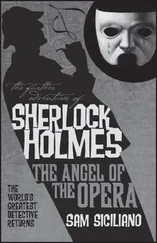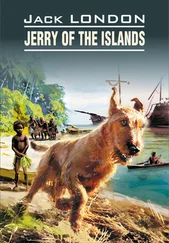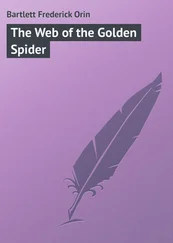Ahern, Jerry - The Web
Здесь есть возможность читать онлайн «Ahern, Jerry - The Web» весь текст электронной книги совершенно бесплатно (целиком полную версию без сокращений). В некоторых случаях можно слушать аудио, скачать через торрент в формате fb2 и присутствует краткое содержание. Жанр: Старинная литература, на английском языке. Описание произведения, (предисловие) а так же отзывы посетителей доступны на портале библиотеки ЛибКат.
- Название:The Web
- Автор:
- Жанр:
- Год:неизвестен
- ISBN:нет данных
- Рейтинг книги:4 / 5. Голосов: 1
-
Избранное:Добавить в избранное
- Отзывы:
-
Ваша оценка:
- 80
- 1
- 2
- 3
- 4
- 5
The Web: краткое содержание, описание и аннотация
Предлагаем к чтению аннотацию, описание, краткое содержание или предисловие (зависит от того, что написал сам автор книги «The Web»). Если вы не нашли необходимую информацию о книге — напишите в комментариях, мы постараемся отыскать её.
The Web — читать онлайн бесплатно полную книгу (весь текст) целиком
Ниже представлен текст книги, разбитый по страницам. Система сохранения места последней прочитанной страницы, позволяет с удобством читать онлайн бесплатно книгу «The Web», без необходимости каждый раз заново искать на чём Вы остановились. Поставьте закладку, и сможете в любой момент перейти на страницу, на которой закончили чтение.
Интервал:
Закладка:
She kept driving, hearing the man's muted curses, the hammering of his fist against the window.
Looking behind her, seeing the angry eyes of the man who held on, Sarah worked the transmission into
reverse. She accelerated, the rear end of the Ford smashing into the motorcycles, her body lurching as she stomped on the brakes. She forgot the clutch; the engine died. The man still hung on, hammering against the window. She depressed the clutch with her left foot, working the key again. The engine wasn't catching. She could hear gunfire, shots pinging against the hood of the truck. She sucked in her breath, almost screaming; there was a smashing sound, of glass. She saw what the bullet had hit—the right-hand outside mirror was gone.
She tried the key again, murmuring, "Please—start— please!"
The engine rumbled to life and she put the stick into first; then as she started downward pressure on the gas, she popped the clutch, the truck lurching ahead under her. She glanced into the rear-view—the bikes were a mass of twisted metal behind her, jammed into the trees like paper clips into a box.
The man clinging beside her was still hammering on the glass. Another of the Brigands threw himself toward the hood. Sarah cut the wheel hard right, and the man slid away.
There was more gunfire, the window behind her head spiderwebbing with a bullet hole, but not shattering.
She kept driving, the man behind her hammering on the glass with his head now, screaming at her. She had to gel away. A stray bullet could hit the gasoline in the back of the truck, could kill her—and what would happen to Michael and Annie.
She couldn't roll down the window to shoot the man. Instead, she sideswiped the Ford into the trees, and the man screamed so loudly she could hear it distinctly.
There was red blood smeared against the driver's-side
window now as she upshifted and started away; men, visible in the outside mirror on the driver's side, were running behind her, firing. But she didn't think they would catch her. , After leading the Brigands off, she returned for Michael and Annie. Then she checked the gasoline. It would be enough to get them to Tennessee, to the Mulliner farm, or close enough at least, she judged.
The children, for the last ten minutes, had been wrapped in the blankets found in the back of the truck. They were sitting in the truck cab, naked under the blankets, the heat running full.
She picked up Sam's saddle and tossed it inside the truck bed, then did the same with Tildie's saddle.
She walked over to the animals, hugged Tildie at the neck, and stroked Sam's forehead between the dark eyes. "I love you guys," she whispered, kissing Tildie's muzzle, then slipping her bridle. She slipped Sam's bridle, then swatted both horses on the rumps, sending them off aiong the shoreline. She looked after them for an instant, manes cutting the wind, tails high. She turned away and cried.
The air felt almost warm to her. The wind lashed back her hair as the borrowed motorcycle rumbled between her legs, her body leaning into it as she navigated a tight turn, and read a sign, water-stained and half knocked down. There had been a museum there; it was now a barracks.
Natalia gunned the Kawasaki ahead. The response didn't seem like that of Rourke's bike. Rourke, she thought.
She wondered if he had found them yet. Were they back in the Retreat, picking up their lives together? And Paul—she smiled. He was a good man, a good friend to them both.
"Both," she repeated into the wind, not hearing it because of the slipstream. Words like both, or us—they were meaningless to her now.
The shore of Lake Michigan seemed remarkably peaceful to her—she watched the smallish whitecaps far off beyond the parkways, liking her view, but sorry for it. She squinted her eyes tight shut, then opened them, realizing how tired she was. She had not wanted to stay with the Soviet troops who had found her with Paul. She had driven with them toward Gary, Indiana, then
borrowed the motorcycle, taking something called "Skyway" and winding her way toward South Lake Shore Drive through what remained of Chicago. The buildings stood, but not a tree grew, not a blade of grass; not a dog yelped in the streets. There were no children. The neutron bombing had seen to that.
She followed the drive north, toward the museum that Varakov so religiously preserved, despite the fact that her uncle used it as his headquarters. And the KGB headquarters were there as well. She wondered, almost absently, if Rozhdestvenskiy had arrived yet from the Soviet Union, to replace her late husband. There had been rumors that he had, and unconfirmed though they had been, she hadn't doubted them.
She almost missed the turnoff, left into the small drive past the museum; not bothering to stop, she slowed so the guards could identify her.
She made a left onto the southbound drive, then a fast left into the museum parking lot, past more guards. The guards saluted, Natalia only nodding.
She parked the bike at the foot of the museum steps, dismounting as she let down the stand. She ran her hands across her face, through her hair.
"Major Tiemerovna . . . you are—"
"Alive." She smiled, looking at the face that belonged to the voice. It was that of a young corporal, a frequent sentry at the museum. "Thank you for caring." She smiled again. "Please, make arrangements to return this motorcycle to Captain Konstantin with the forces in Gary, Indiana; it was a loan."
"Yes, Comrade Major." The younger man saluted. She nodded, gesturing toward her clothes, then started up the steps, two at a time, the pistols shaking in the holsters
against her hips; the gun barrels with the American Eagles on them had elicited raised eyebrows on her comrades in Indiana. She smiled thinking about that. A gift given in friendship—she would use them from now on.
She stopped at the height of the steps to look at the sun, appearing reddish orange over the lake.
How long would from now on be? she wondered. She thought of Rourke, and she shook her head, tossing her hair back as she moved through the brass-looking doors into the museum; then she started across the vast main hall. She saw the figures of the mastodons that her uncle seemed so obsessed with watching, studying. And beyond them, on the small mezzanine, where she had thought she would find him, he stood, staring—at the mastodons.
There were men and women moving about the main hall, office workers, messengers. Ignoring them, she shouted, running now, past the mastodons, "Uncle Ishmael!"
The face turned toward her as she called again "Uncle!" She saw his thick lips forming into a smile, his arms outstretching, his uniform blouse opening. And as his arms expanded toward her and she took the mezzanine steps two at a time, running, his jacket opened wider, revealing the potbelly he had always had ever since her first remembrance of him—like a father. And like a daughter, she came into his arms, hugging his neck, feeling the strength of his arms around her.
"Natalia Anastasia," he murmured.
"Uncle." And she held him tightly.
"You are well, child?" he asked, folding her in his right arm, turning to stare across the museum's
great hall.
She stood beside him. "Yes, Uncle—I am well."
"The storm—when I heard that our troops found you, my heart—if an old man's heart can sing, then mine did," he said, not looking at her.
She studied his face.
"When I did not receive word from Chambers, the American president, I was frightened. For you."
"John Rourke flew all of us out of Florida, Uncle; he helped Paul Rubenstein find his parents. We took off just as—"
"Just as the final tremor hit. Thank—" He looked at her and laughed. "Yes, thank Lenin's ghost, child." And he laughed again. "That man, the mole agent who accompanied you when our troops found you, I assume he was Paul Rubenstein, the young Jew?"
Читать дальшеИнтервал:
Закладка:
Похожие книги на «The Web»
Представляем Вашему вниманию похожие книги на «The Web» списком для выбора. Мы отобрали схожую по названию и смыслу литературу в надежде предоставить читателям больше вариантов отыскать новые, интересные, ещё непрочитанные произведения.
Обсуждение, отзывы о книге «The Web» и просто собственные мнения читателей. Оставьте ваши комментарии, напишите, что Вы думаете о произведении, его смысле или главных героях. Укажите что конкретно понравилось, а что нет, и почему Вы так считаете.







